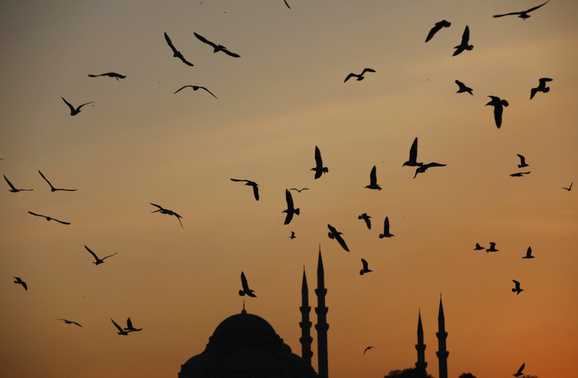The press in Turkey
Not so free
The government finds different ways to intimidate the free media
Apr 6th 2013 | ISTANBUL |From the print edition
FIRST comes the phone call, usually from a prime ministerial adviser. Displeasure over the critical writings of a columnist is relayed. He or she is admonished. “Tone it down,” bosses plead. The columnist stands firm and is then sacked.
Fearful of antagonising Turkey’s autocratic prime minister, Recep Tayyip Erdogan, media bosses (who have diverse business interests) have begun a cull. Many recall the $2.5 billion fine slapped on the Dogan Group, Turkey’s biggest media conglomerate, in 2009. Its owner, Aydin Dogan, was forced to shrink his empire and dump some critics of Mr Erdogan before the pressure eased.
By some counts scores of journalists have been sacked (soon after she started this story, your correspondent was dropped as a columnist by a local paper). Yet Ercan Ipekci, president of the Turkish Journalists Union, calls the sacked hacks “the luckier ones”. Turkey is now the world’s leading jailer of journalists. Estimates vary, but at least 49 are behind bars. The World Press Freedom Index 2013, recently published by Reporters Without Borders, a Paris-based lobby group, ranked Turkey 154th among 179 countries, behind such places as Mali and Afghanistan.
The government retorts that most jailbirds have been locked up for violating Turkey’s anti-terror laws. Mr Ipekci disagrees. He cites Omer Celik, who faces up to 15 years’ imprisonment on charges of “acting under the orders of a terrorist organisation”. Much of the evidence against him focuses on his reporting on the activities of “a political party” (probably an allusion to the pro-Kurdish Peace and Democracy Party). A fresh legislative package, part of Mr Erdogan’s new stab at peace with the Kurds, will narrow the scope for “terror crimes”. Rights groups are not impressed. “If passed by the Parliament in its present form…it would represent another missed opportunity to deliver genuine human-rights reforms,” declared Amnesty International.
A growing number of journalists are resorting to self-censorship to survive. Coverage of alleged corruption scandals linked to the government is a no-go area. So is Turkey’s covert support for Syrian rebels. A recent investigative piece in the New York Times in which it was claimed that Ankara’s Esenboga airport has become a big hub for Qatari and Saudi arms flowing to the rebels was dutifully ignored.
Ironically, the newspapers are instead pointing fingers at Germany, where Turkish journalists complain that they are being denied access to what looks like becoming a show trial, involving the murder of ten people, eight of them of Turkish origin, between 2000 and 2007. Their gripe is over the allocation of press places at the trial in a higher Munich state court of five suspected members of the NSU, a neo-Nazi terrorist movement. By giving only 50 press places for the trial, the Munich court seems bent on keeping it an all-German affair. Ahmet Davutoglu, the Turkish foreign minister, has called on his German opposite number, Guido Westerwelle, to get the trial moved. But the court refuses to budge.
Proponents of Mr Erdogan’s ruling Justice and Development (AK) have seized on the affair as proof that “the West is no better than Turkey.” For all its flaws, their argument runs, AK has made Turkey a more democratic place. It is true that Mr Erdogan has done more than any secular rival to tame the generals and accommodate the Kurds. In the bad old days of weak coalition rule, Kurdish journalists were tortured by the dozens or even killed. Then media bosses would bend before the army. But after ten years of AK rule such arguments are wearing thin. Pity the reckless hack who dares say so.
From the print edition: Europe
via The press in Turkey: Not so free | The Economist.


Leave a Reply